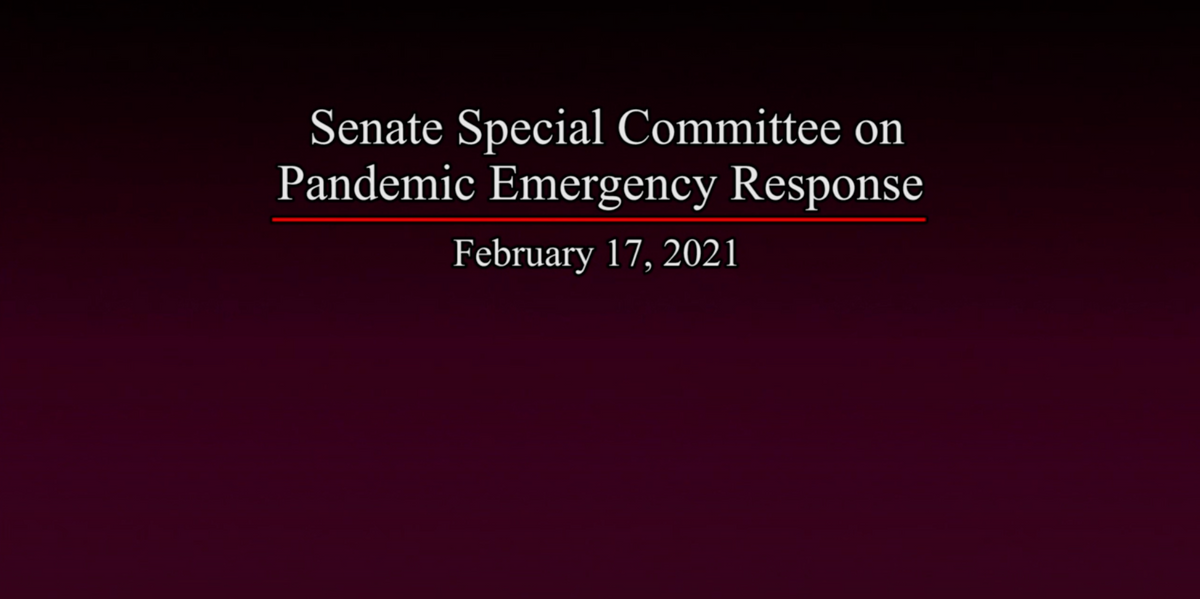CQEL Senate Testimony: Special Committee on Pandemic Emergency Response
CQEL testified at the California Senate's Special Committee on Pandemic Emergency Response. This is the transcript.

Watch the full video here.
I'll start by saying, I don’t look anything like the typical child care provider. The average child care provider is a 30 to 60 year-old woman, and likely a woman of color. Today let's call her Maria. Maria got into child care after attending ECE classes at night because after caring for her niece, she had this feeling that wouldn't go away - the feeling of love seeing the change she can make in a child's life. The feeling that this was her life’s purpose.
After 5 years of classes, 3 years of teaching, two bank loans and many IOUs from family and friends, Maria opened a 1-classroom child care center so she can make change in more children's lives.
Fast-forward to January 2020, after 26 years of running and expanding her high-quality program to four classrooms, Maria is as passionate as ever, but she's tired. Tired of the constant ratcheting up of requirements, tired of the annual threat of TK taking away her program, and tired of still being treated like she's "just a babysitter".
Then the pandemic hits, and Maria is enveloped with uncertainty and stress. But she endures, continuing to serve her families, who are nearly all essential workers, and paying her teachers directly out of her meager personal savings account. Things are hard, the hardest they've ever been, but “things will work out," she tells herself.
Four months later, July 15th, the state releases a pdf on new cohort and cleaning guidance, limiting the size of her classroom, restricting her ratios, requiring her to divide classrooms with floor-to-ceiling, non-penetrable barriers and to keep her 2 year olds 6 feet apart at all times. She's re-read it 10 times. That's what it says. She can't believe it, and she simply can't do it.
She already can't pay rent, she can't modify her program to these standards, and she can't even keep her teachers employed when the threat of covid is so great. Now "these things are not going to work out".
It's time to quit, and since no one will take over a child care center in a pandemic, she shuts it down, removing all 96 child care spots, forever.
But the story isn't over. See, a week after closing, Maria talks to a friend and hears that the cohort and cleaning pdf wasn't about regulations after all, it was simply provided as guidance. But Maria's not a lawyer, can't differentiate "should", "shall", and "must", and always does right by her children, families, staff and state.
While this guidance was meant to help providers navigate building safe procedures, it put many of them out of business, because it wasn't clear that it was just guidance. Many of them turned to CQEL and non-profits like ours for help, as they could not get clear communications from state agencies. Those we helped, and many stayed open, but many, like Maria, didn't get help until it was too late.
Maria isn't a real person, but rather a representation of the experience of hundreds of child cares. Many of whom are still experiencing the same exact needless issue today. Since March 2020, 2,160 child cares have permanently closed statewide.
Child care providers mean well, and do well, but get stuck in the opaqueness of government-speak, get snagged in the red-tape of licensing processes, and get pummeled with legislation that shrinks their resources and increases their emotional debt every single year.
To legislators and agencies:
- We ask for child care providers to be given clear and consistent guidance.
- We ask for the erasure of unnecessary rules and regulations that do more harm than good.
- We ask for the same respect, care, and decency to be given to the essential child care workers as they give to our children and families every single day.
- And above all- we ask for legislators here to advocate for providers. Be "the child care legislator" who stands up for providers who otherwise don't have a voice. Build bridges instead of blockades, build discourse instead of discord. After all, advocating for child care is advocating for our children’s futures.
